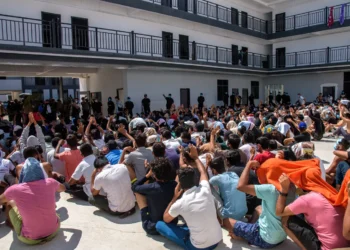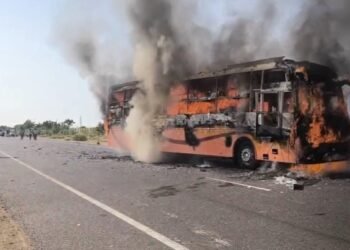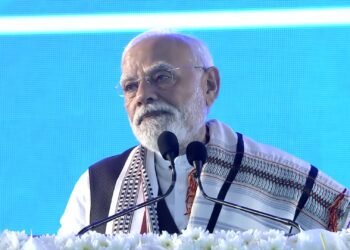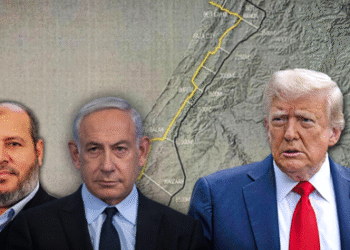Editor’s Note: As part of our ongoing commitment to serve as an advocacy platform for peace in Manipur, we continue to welcome “opinion” pieces from all communities. We urge contributors to refrain from language that could be interpreted as inciting violence or hatred. In line with this initiative, we present a write-up by Mr. Uday S. Reddy, who is an Emeritus Professor at the University of Brimingham in England. A long-standing editor on Wikipedia, Prof Reddy ( @Kautilya330 has kept a close eyes on Manipur development since the ethnic clashes first erupted in May 2023. Please mail your write-up at: novinkn@gmail.com
By Uday S. Reddy
The long-awaited report of the PUCL-organised Independent Tribunal on the Manipur violence is out. The first surprise is the size of the report, close to 700 pages. The contents are very wide-ranging, covering the historical background, the causes of the violence as understood by the Tribunal, experiences narrated by the victims, life in the relief camps, measures of justice or lack thereof, media coverage of the violence, and a large number of policy recommendations. Special attention is given to gendered violence.
The report fulfills the goals set out by PUCL in advance, which were to document the violations suffered by the people, to examine the role of constitutional authorities and security agencies, and to propose recommendations to repair the social fabric. But those of us that expected fact-finding detail on how the violence developed and continued to be conducted over more than two years, were disappointed.
The Tribunal was evidently limited by the modes of operation they chose, viz., voluntary depositions from witnesses. It is apparent that Meitei witnesses were very forthcoming with testimonies but the Kuki witnesses did not volunteer in sufficient numbers. “Meitei representative organisations” apparently deposed (p. 283) but there is no mention of any Kuki representative organisations. We can also find several Meitei scholars mentioned (pages 204, 293, 295), but no Kuki scholars.
As a result, the discussion is skewed towards the Meitei narratives. For example, the chapter on Tracing the Causes has detailed discussions of “Refugees from Myanmar”, “Geo-Political considerations”, “Poppy cultivation and drug trade”, which were all Meitei concerns, but very little discussion on forest evictions, which was the topmost issue on Kuki minds at the beginning of the violence (as evidenced by the events preceding the May 3 rally, and the press descriptions of the rally itself). The present author himself testified about this aspect as an “outside expert”, but it does not seem to have been corroborated by enough Kuki witnesses, and did not make it to the top layer of concerns for the Tribunal.
The largest portion of the report is devoted to the failures of the state through its omissions and commissions. A damning indictment is found in the summary itself: “the violence was not spontaneous but orchestrated, enabled by armed Meitei vigilante groups like Arambai Tenggol and Meitei Leepun, and facilitated by state complicity and law enforcement failures.” The conclusion is backed by a narration of the events preceding the violence including the state’s targeting of alleged “illegal immigration”, poppy cultivation and forest encroachment, and also by Kuki testimonies about their houses getting tagged in advance. Police inaction and complicity are found in abundance in witness testimonies, and the report has also castigated the chief minister for targeting Kukis and inflaming tensions.
The author finds one glaring error in the executive summary. Under Chapter 4, it is stated (p. 20) that Kuki settlements in Imphal were attacked first and “retaliatory violence” emerged in Churachandpur and Kangpokpi. Such explicit causation between Imphal and Churachandpur is not actually described in Chapter 4. Most people knowledgeable about the matter say that the violence was roughly contemporaneous in both Imphal and Churachandpur. This error should be corrected as it is needlessly inflammatory.
READ: PUCL Tribunal on Manipur: Global Citizens for Kuki-Zo Demand Accountability
The report also displays some confusion between the villages Kangvai and Phougakchao Ikhai at the border between Churachandpur and Bishnupur districts. Kangvai is a Kuki-Zo village of around 1,000 people and Phougakchao Ikhai a Meitei village of around 2,000 people, both to the north of Torbung. It is unclear which village suffered violence first, but the report infers that “violence erupted in Kangvai after the rally concluded” (p. 168) and that “Kuki mobs started [it] around 2:30 PM to 3 PM” (p. 172). It is unlikely that the Kuki mobs attacked their own village. Once again, inadequate Kuki testimony seems to have misled the Tribunal.
While the Kukis have largely welcomed the report as representing the “ground reality” of their situation, the Meiteis are chafed. Their complaints have been voiced in editorials in The Frontier Manipur and the Imphal Review of Arts and Politics. The Rajya Sabha MP, Leishemba Sanajaoba, called the report “totally wrong, biased, one-sided” etc.
The situation is strange. As a civil society body, the Tribunal was tasked with investigating the failures of the state and constitutional authorities. That naturally turns the focus on the Kuki-Zo communities, who were targets of the state-driven action as well as violence by militias under state patronage. For the Meiteis to claim that they were equal sufferers, which was not represented in equal measure in the report, does not square with this mission. In the first place, their suffering was not equal. Reuters documented, for instance, the huge disparity in loss of life: 77 Kukis and 10 Meiteis during the first week of the violence. Secondly, the Meiteis were not targets of state-driven action.
READ: Kuki-Zo Council Backs PUCL report on Manipur Ethnic Violence, Cites “Irreversible Divide.”
It is another matter that many Meiteis identify with the Manipur state as well as the Meitei militias claiming to uphold Meitei interests. To them, any criticism of the Manipur state or of Meitei militias appears as a criticism of the Meitei community itself. But a civil rights body cannot make such an equation. Not only does it contain ample coverage of the Meitei victims of the violence, but the report also seems to lean towards supporting the Meitei demand for Scheduled Tribe status, claiming that the socio-economic gap between Kukis and Meiteis is not large (p. 17).
Notwithstanding these limitations, the PUCL Tribunal report is extremely valuable for bringing to light the role of state agencies in the conflict, and for showing the way to make amends. Its recommendations need to be carefully studied and reflected upon by all communities as well as the government bodies.













